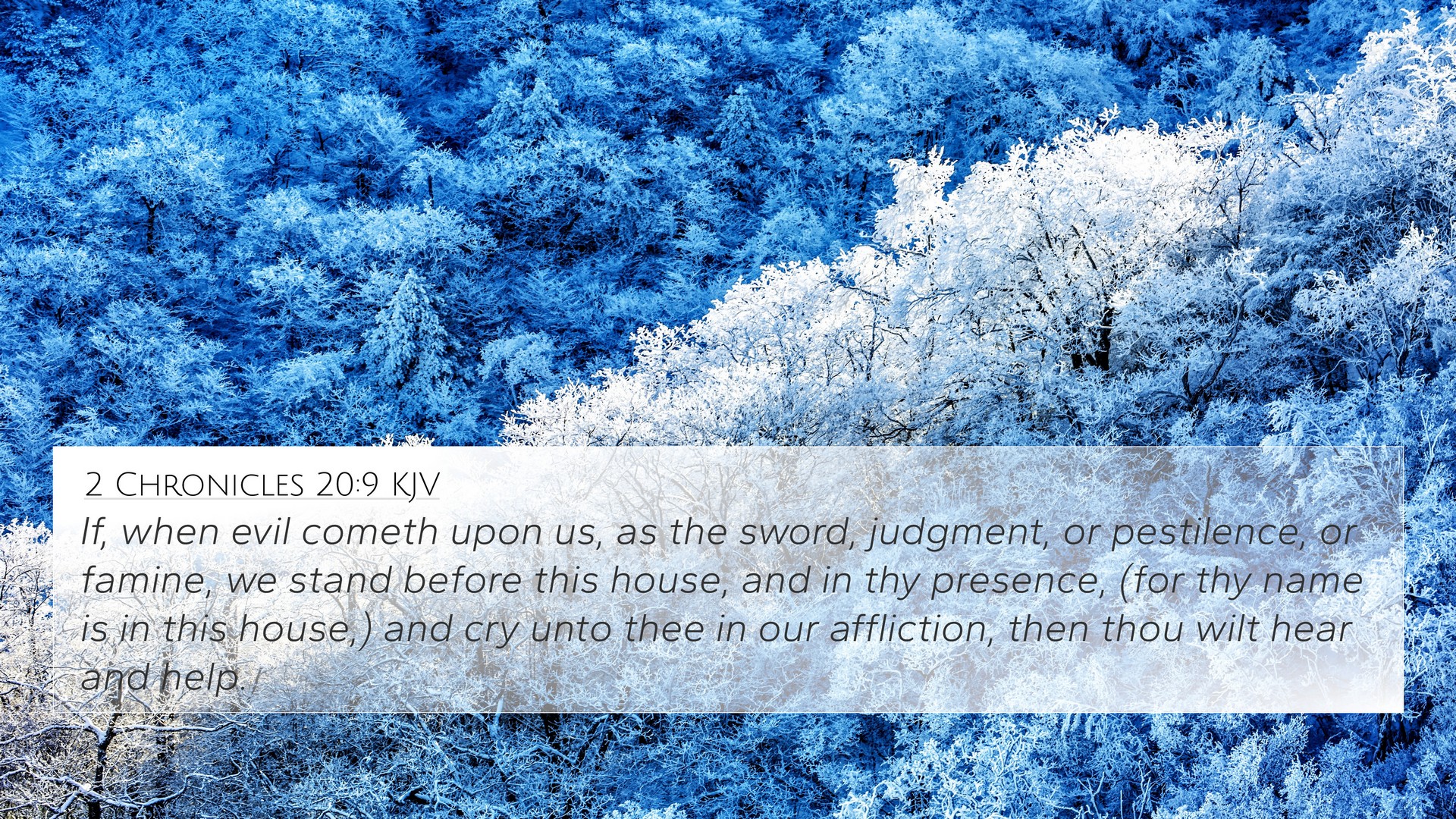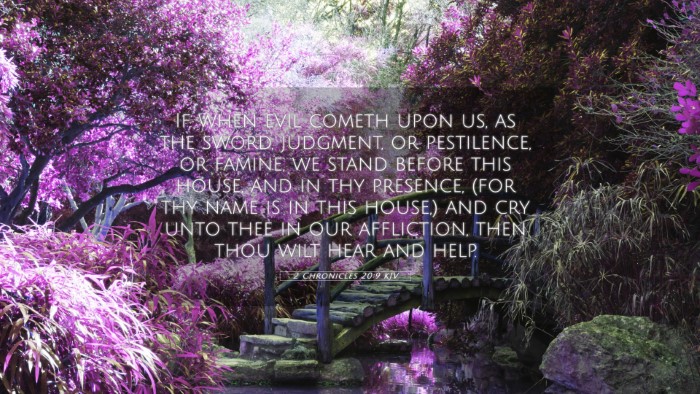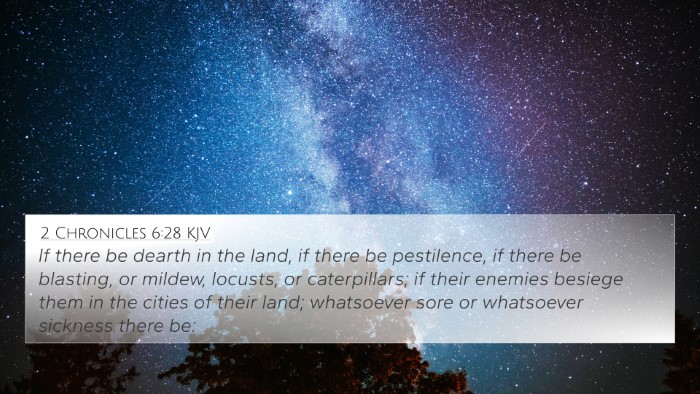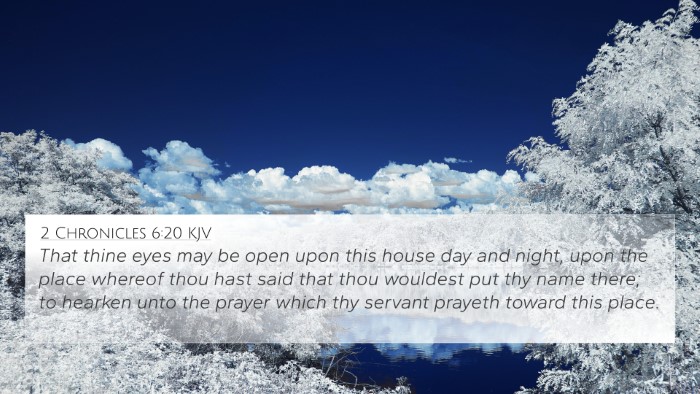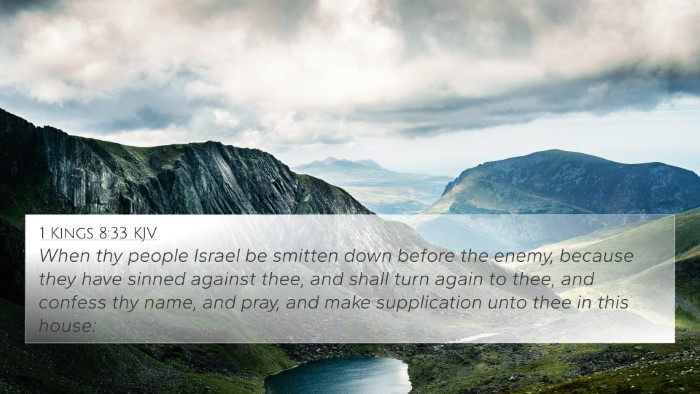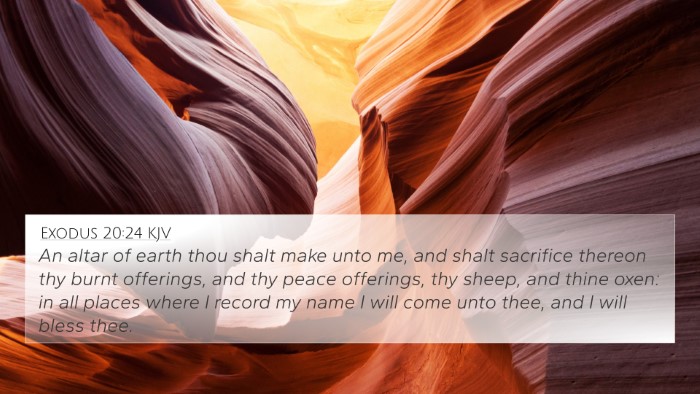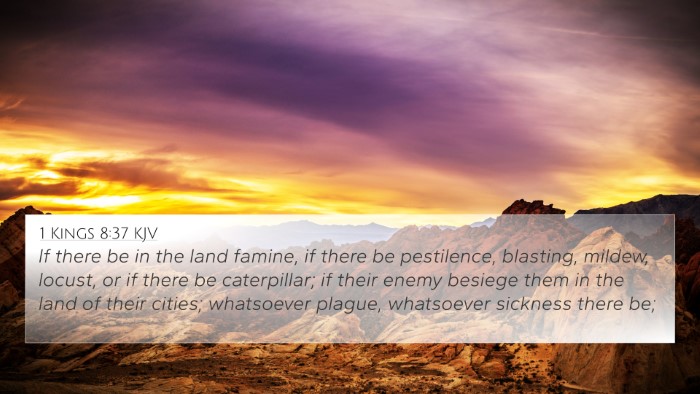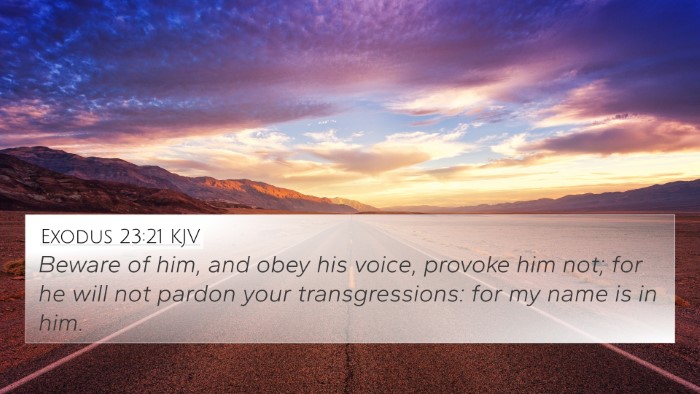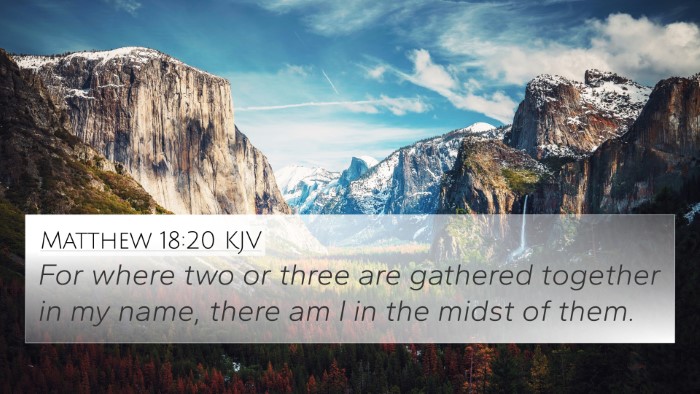Understanding 2 Chronicles 20:9
2 Chronicles 20:9 states, “If disaster comes upon us, the sword, judgment, plague, or famine, we will stand before this temple and before you (for your name is in this temple) and cry out to you in our affliction, and you will hear and save.”
Verse Meaning and Context
This verse is part of King Jehoshaphat's prayer during a crisis faced by Judah, where he acknowledges God's sovereignty and mercy. The context illustrates a collective dependence on divine intervention in times of trouble.
Key Themes
- Divine Presence: The phrase “for your name is in this temple” signifies God's presence and the sanctity of the temple as a place of worship and supplication.
- Collective Prayer: The communal aspect of calling upon God reflects the importance of unity among the people in seeking divine help.
- Affliction and Deliverance: The assurance that God will hear their cries highlights His mercy and readiness to save those in distress.
Commentary Insights
Matthew Henry's Commentary
Henry emphasizes the earnestness of the prayer, noting that Jehoshaphat mentions various types of disasters as a recognition of the potential calamities one might face. He illustrates how the faithful can trust in God to respond to their supplications in times of trouble, reflecting a broader theme of divine faithfulness.
Albert Barnes' Notes
Barnes elaborates on the idea that Jehoshaphat's appeal is not merely a personal plea, but a recognition of God’s covenant relationship with His people. He suggests that the mention of standing in the temple symbolizes standing in God’s presence, expecting His intervention amidst national crises.
Adam Clarke's Commentary
Clarke notes the significance of the temple as a visible representation of God’s presence and an assurance to the people that they are not alone in their struggles. He connects this sentiment with biblical themes of hope and reliance on God during perilous times.
Cross-References
Several related scripture verses illuminate the themes within 2 Chronicles 20:9:
- Psalm 50:15: "And call upon Me in the day of trouble; I will deliver you, and you shall glorify Me."
- 1 Peter 5:7: "Casting all your care upon Him, for He cares for you."
- 2 Chronicles 7:14: "If My people who are called by My name will humble themselves, and pray and seek My face..."
- Isaiah 41:10: "Fear not, for I am with you; be not dismayed, for I am your God."
- Matthew 18:20: "For where two or three are gathered together in My name, I am there in the midst of them."
- Acts 4:24: "So when they heard that, they raised their voice to God with one accord..."
- Luke 18:1: "Then He spoke a parable to them, that men always ought to pray and not lose heart."
Thematic Connections
The themes within 2 Chronicles 20:9 resonate with various instances across the Bible where God's people faced dire situations. This verse encourages believers today to understand the power of prayer, especially in times of collective crisis.
Tools for Bible Cross-Referencing
Utilizing Bible concordance and cross-reference tools can provide deeper insights into the relationships between verses. Engaging in cross-reference Bible study methods enhances understanding by identifying thematic links across both the Old and New Testaments.
Conclusion
In summary, 2 Chronicles 20:9 is a powerful testament to faith during turbulence. It encapsulates the essence of communal prayer and divine reassurance. By exploring cross-references, believers can expand their understanding of scripture and encourage inter-Biblical dialogue that fosters spiritual growth and insight.
